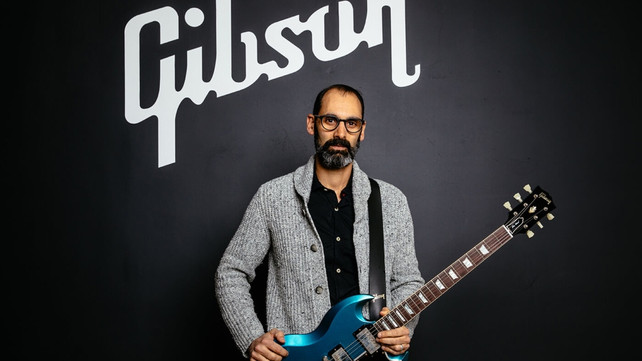ccn
Well-known member
Gibson CEO Speaks on How Previous Leadership 'Was Losing Focus': 'The Playbook Was Already There — I Didn't Need to Reinvent It'
"They [were] losing focus of what makes Gibson Gibson — which is making the best guitars ever made."
Gibson CEO and president Cesar Gueikian reflected on how the brand saved itself after falling from grace in the late 2010s and his role in it, while also explaining the decision to establish Custom Shop's Murphy Lab department.
Having joined the iconic guitar manufacturer's family in 2018, i.e. in the same year Gibson declared bankruptcy, Cesar Gueikian arrived at a time when the once awe-inspiring name had lost a lot of its shine. Since then, however, the addition of Gueikian proved to be a wise one, as the combination of his passion for the brand and his business background significantly contributed to the brand's recent renaissance.
After working as chief merchant officer and brand president, Cesar was named President/ Interim CEO after James Curleigh stepped down in may, and Gibson's board of directors confirmed that he would serve as both permanent CEO of the company as well as its president this July.
From lost focus to an unique opportunity
Speaking to Dean Delray in a recent interview, Gueikian said that the company had lost focus at one point in the past, naming Gibson's foray into consumer electronics as an example (transcribed by Ultimate Guitar"The prior ownership group had gone in to consumer audio; let's call it consumer electronics and consumer audio. And that's what led to my hypothesis of sorts, that maybe there's an opportunity here because they're losing focus of what makes Gibson Gibson — which is making the best guitars ever made. And maybe that's going to lead to mistakes being made, that can lead to us taking over the company. That was my hypothesis originally, and that's how this came to be."
The playbook was there all the time
Despite the late 2010s stumble, Gueikian argues that the Gibson playbook had been around forever, and that the business philosophy that's proven to be so successful time and again isn't all that complicated:"In addition to the ups and downs, and the different strategies that maybe owners have pursued over time, you can always go back to what we call our golden era — which is really our second golden era — which was from 1948 to 1960s, under the leadership of Ted McCarty. [It's] something that I studied since I was in my teenage years, when I got so interested in everything that Gibson had done in history."

"And so when you start looking at that playbook — I don't have to reinvent it. [There's been] ups and downs since then, with different ownership groups, but ultimately, that is a great playbook for what we need to be doing going forward. And now, we have an extra level of complexity. What happened during that golden era really defined us. But at the same time, we need to think about, 'How do we take innovation going forward?' And that's why we have the Gibson lab."
"Like, what are we going to pay tribute to the golden era, while, at the same time, be stewards of our future so that — and this is something I find is critical — the best years are ahead of us, not behind us.
Establishing the Murphy Lab
Another development that's tied with Gueikian's arrival was the establishment of a permanent Murphy Lab, a division of Gibson's Custom Shop specialized in making historically accurate guitars from previous eras. Asked if it was his idea to renew contacts with master luthier Tom Murphy, who previously developed Gibson's Historic Les Paul line in the '90s, Gueikian said:"Yes. One day, Tom shows up in my office with a brown case. I open up the case, look at this guitar, and I saw a 1959 Gibson Les Paul. And I asked Tom, 'Who owns this? I want to buy it.' And he says, 'It's a new guitar.' And that day, which was about four years ago, was when the light bulb went on.
"After he walked me through how he did that which is taking 30 years of experience and putting it all into the most incredible, historically accurate way of aging — I said to Tom, 'I'm going to build you a lab.' And he's like, 'What the fuck are you talking about?' I'm like, 'I'm going to build you a lab. It's going to be called Murphy's Lab. You're going to run it, and it's gonna be a physical place, inside the Custom Shop.' I was just riffing at the time, and I don't know where this is going, but things are just coming to me... And we did it.
"Now we have the Murphy Lab, it's been a couple of years in existence. It's a physical place, inside the Custom Shop that requires an extra set of credentials to go in, because it's a trade secret.
And the Murphy Lab is run by Tom Murphy full time, with a group of mad scientists that are looking at original examples; they have all of my collection always available, photographs of my entire collection of Gibson's golden era, and we we scan, photograph everybody's originals that come through", Gueikian says, noting how the Murphy Lab hosted Billy Gibbons only recently to document his famous "Pearly Gates" Les Paul Standard.
"As Tom, over the next couple of years, starts considering retirement, the name Tom Murphy and the Murphy Lab will live forever."
